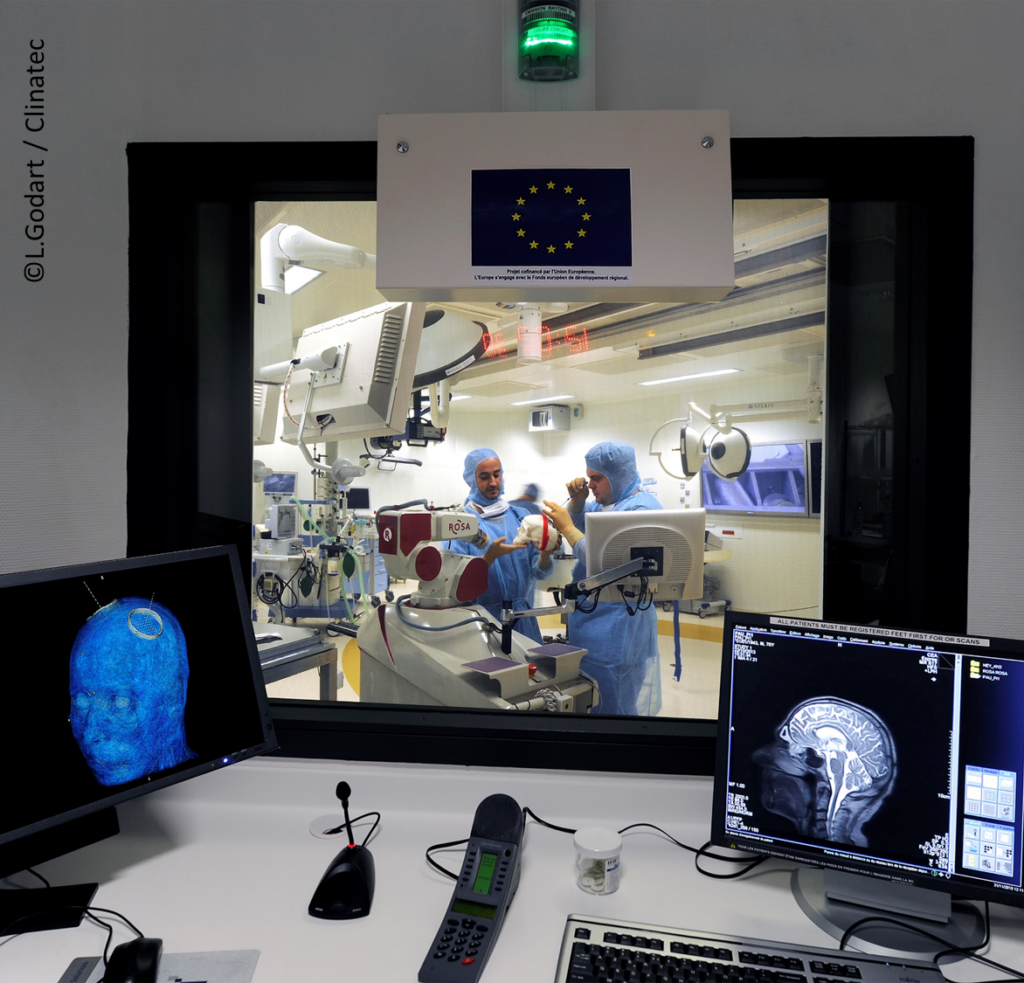
The paper points out that CEA Grenoble was the site of the development of the WIMAGINE brain implant, which in 2019 enabled a tetraplegic patient to achieve proof of concept for the control of a 4-limb exoskeleton by brain activity, and in 2023 enabled a paraplegic patient to walk naturally again without an exoskeleton. The support of the Fonds Clinatec patrons has made a major contribution to the development of this brain implant.
In addition to brain-machine interfaces, Clinatec is exploring intracranial and transcranial photobiomodulation to detect, prevent and treat diseases such as Parkinson’s and Alzheimer’s. Clinical trials are currently underway to test the effectiveness of this technique.



